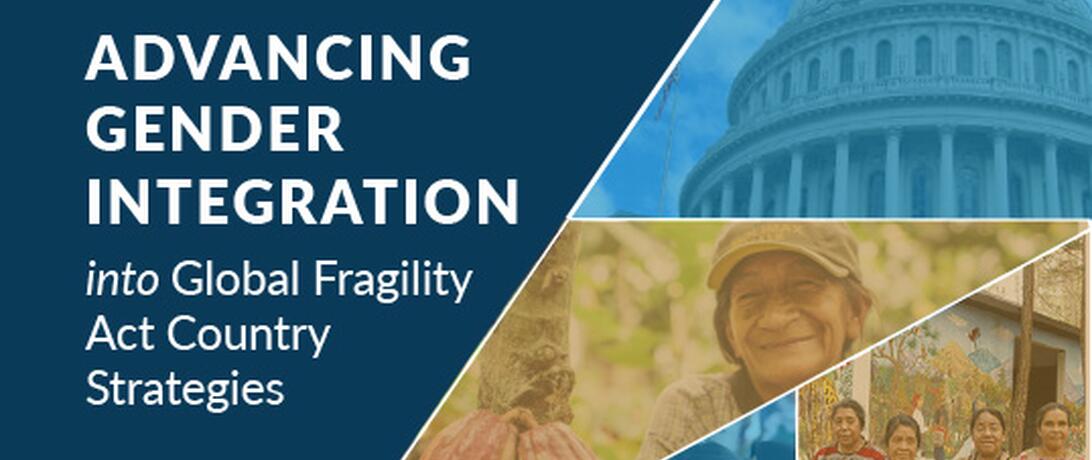
Our Secure Future, in partnership with the Alliance for Peacebuilding, the Georgetown Institute for Women, Peace and Security, and the McCain Institute, organized a series of consultations with civil society groups and officials from the US Government in July and August 2020. The goal of this series of consultations was to review lessons learned and best practices for gender integration into programming, policy, and learning and evaluation to ensure a gendered perspective is incorporated into the GFS and the ten-year country and regional plans.
This report is the Gender Companion to the previously published Getting from Here to There: Successful Implementation of the Global Fragility Act.
Key Findings
-
CONDUCT GENDER-SENSITIVE CONFLICT ANALYSIS TO UNDERSTAND THE GENDER NORMS OPERATING IN THE CONTEXT and the gendered impacts and drivers of conflict, and address a broad definition of violence and its effects on long-term community stability.
-
SUPPORT INCLUSIVE RESEARCH APPROACHES AND ANALYSES, MOVING FROM MEASURING OUTPUTS TO MEASURING OUTCOMES that are relevant to scope, with disaggregated data, including indicators encompassing gender, ethnicity, age and/or other marginalized identities.
-
PURSUE ACTIVITIES THAT SUPPORT THE INCLUSION OF WOMEN IN FORMAL AND INFORMAL PEACE AND GOVERNANCE STRUCTURES at the local/community, state and national levels. For example, enhancing and supporting women’s networks can help to promote their inclusion in decision-making processes.
-
DEVELOP A GENDER-SENSITIVE APPROACH TO PROJECT DESIGN AND MEASURING & EVALUATION, which will require strengthening institutional and individual capacity to undertake gender mainstreaming in programs. Gendered metrics require gender mainstreaming across all programming.
-
PROVIDE DEDICATED AND TRANSPARENT FUNDING FOR IMPLEMENTATION OF WPS COMMITMENTS IN ALL ACTIVITIES, as well as direct funding to womenled and women’s rights organizations.